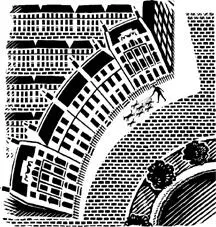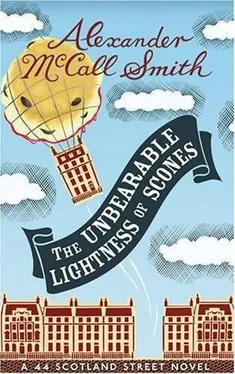Alexander Smith - Unbearable Lightness of Scones
Здесь есть возможность читать онлайн «Alexander Smith - Unbearable Lightness of Scones» весь текст электронной книги совершенно бесплатно (целиком полную версию без сокращений). В некоторых случаях можно слушать аудио, скачать через торрент в формате fb2 и присутствует краткое содержание. Жанр: Триллер, на английском языке. Описание произведения, (предисловие) а так же отзывы посетителей доступны на портале библиотеки ЛибКат.
- Название:Unbearable Lightness of Scones
- Автор:
- Жанр:
- Год:неизвестен
- ISBN:нет данных
- Рейтинг книги:4 / 5. Голосов: 1
-
Избранное:Добавить в избранное
- Отзывы:
-
Ваша оценка:
- 80
- 1
- 2
- 3
- 4
- 5
Unbearable Lightness of Scones: краткое содержание, описание и аннотация
Предлагаем к чтению аннотацию, описание, краткое содержание или предисловие (зависит от того, что написал сам автор книги «Unbearable Lightness of Scones»). Если вы не нашли необходимую информацию о книге — напишите в комментариях, мы постараемся отыскать её.
Unbearable Lightness of Scones — читать онлайн бесплатно полную книгу (весь текст) целиком
Ниже представлен текст книги, разбитый по страницам. Система сохранения места последней прочитанной страницы, позволяет с удобством читать онлайн бесплатно книгу «Unbearable Lightness of Scones», без необходимости каждый раз заново искать на чём Вы остановились. Поставьте закладку, и сможете в любой момент перейти на страницу, на которой закончили чтение.
Интервал:
Закладка:
“I shall be out all morning,” Antonia said to Domenica. “And so I wondered if I could leave a note on my door asking them to deliver to you if they arrive in the morning. That is if you’re going to be in.”
“I shall be in,” said Domenica helpfully.
Antonia smiled, and handed her the key to the flat. “I thought as much.”
Domenica wondered how she should take that. Did Antonia mean to suggest that she, Domenica, was bound to be in because she never received any invitations to go out? Or had nowhere to go, even uninvited? How often did Antonia herself go out?
“I’m out quite a lot, of course,” Domenica found herself saying. “You know how it is. But, as it happens, I shall be in tomorrow morning. Until about twelve. Then I shall be going out for lunch with friends.”
There was no such meeting yet arranged, and Domenica felt a bit petty inventing it on the spot. But she would be going out, she decided; she would telephone her friend Dilly Emslie and meet her for lunch in the Scottish National Portrait Gallery. So she had not exactly told a lie. And anyway, it was Antonia’s fault, with that silly implication that Domenica had a thin time of it socially. If you make that sort of comment, then people will feel it necessary to retaliate.
“Thank you,” said Antonia, adding, “I know how busy you are.”
Domenica pursed her lips. “Yes.”
“So if you wouldn’t mind getting them to put it in the sitting room, next to that green chair of mine. I’ve put four of those round casters out on the floor – ask them to rest the legs on those – you know how these people are. They don’t care a jot about your floors.”
Domenica took the keys and nodded. “I’ll do my best,” she said. Then she paused. “Going anywhere interesting?”
Antonia looked away. “National Library,” she said. “It’s my novel. I’m on to something.”
Domenica waited for more, but nothing came. The Scottish saints, in Antonia’s hands, were a strange and secretive quantity, quite unlike other saints, with their bland and worthy lives. The early Scottish saints were, Antonia had hinted, ever so slightly bitchy, but in the nicest possible way, of course. Had anything changed?
40. A Delivery that Leads to Temptation
Temptation comes in many forms: the bottle, the beguiling face, the tray of chocolates – these can all lure any of us off the path of rectitude which often seems, if not steep, then at least rather dull. For Domenica, on whom any of the above forms of temptation would have little effect – even if the bottle, in the shape of a slightly larger helping of Crabbie’s Green Ginger Wine, would occasionally beckon – temptation now presented itself in the shape of the key to Antonia’s flat. Antonia had pressed this into her hand with the request to supervise the delivery of a new green armchair, and Domenica, quite naturally, had agreed. But when, as she sat drinking her morning coffee, she saw the key lying innocently on the kitchen table, it occurred to her that she now had unfettered access to Antonia’s flat, at least for that morning, and that this meant she could retrieve the blue Spode teacup that Antonia had stolen from her and which she knew was in use next door.
That was her initial thought and, at first blush, it seemed a perfectly reasonable thing to do. The teacup remained her property and surely an owner of property was fully entitled to vindicate her right to it wherever and whenever the opportunity to do so arose. To enter the flat, then, with the sole purpose of claiming what was hers, was not house-breaking or anything remotely similar – it was merely recovering unlawfully purloined property. The act of going into the flat was akin, she thought, to the technical violation of national sovereignty which occurs when one country crosses the border of another in order to deal with a previous unlawful incursion. That was clear. And if the United Nations and the whole corpus of international law allowed that, then surely she would be entitled to go in pursuit of her tea cup. And yet, and yet…
The problem with entering the flat for the purposes of retrieving the cup was that it would be a breach of trust. Antonia had given her the key for the express and limited purpose of helping with the delivery of an armchair. If she were to use the key for any other purpose – even for that of retrieving what was hers – then that would amount to an abuse of the original trust. So she simply could not do it.
That is what she had decided when Angus Lordie knocked on her door. He occasionally called unannounced – usually when he felt like a cup of coffee and some conversation – and Domenica normally welcomed these visits.
“I smelled the coffee,” Angus said from the doorstep. “Or rather, Cyril did. He has a particular nose for Jamaica Blue Mountain blend, which I take it is what is producing that singularly agreeable odour wafting about.”
“Blue Mountain it is,” said Domenica. “And a rather expensive brand, if you don’t mind my pointing out, Angus. But do come in. Perhaps dear Cyril would find it more comfortable out on the landing. How are his puppies, by the way?”

Angus waved a hand in the air. “Perfectly all right,” he said. And they were – as far as he knew. That agreeable stranger he had met in Drummond Place had seemed most solicitous as to the puppies’ welfare; of course they would be all right.
They went through to the kitchen, where Domenica poured Angus a cup of coffee and invited him to sit down at the table. The newspaper, open on the table in front of her, had much that she wished to discuss with him. Duncan MacMillan had written another witty denunciation of the Turner Prize for modern art, which had just been awarded to a loop of washing line draped around an old suitcase. This installation had been very well-received in London, but not in Edinburgh, where such pretentious posturing was fortunately seen for what it was. Duncan Macmillan pointed this out in no uncertain terms and Domenica was keen to see if Angus agreed. He did.
“I agree with everything he writes,” he said. “Everything.”
So that settled that. Then, just when Domenica was about to proceed to the next item on her agenda, they were disturbed by barking from the landing outside.
“Strange footfall,” said Angus. “How fortunate that Cyril is there to warn us.”
Domenica rose to her feet. “That will be Antonia’s delivery,” she said. “She has entrusted me with her key to let the delivery men in. Will you please come and move Cerberus from his position at the edge of Lethe.”
“Leith.”
“That’s what I said.”
They went out onto the landing. Down below, muttered voices told them of the approach of two delivery men who were manhandling a substantial armchair up the stairs. Angus silenced Cyril and led him back into the flat while Domenica opened Antonia’s front door. Angus then returned to the landing and waited with Domenica.
The burly delivery men, puffing and panting from their exertion on the stairs, carried the armchair into Antonia’s hall, followed by Domenica and Angus.
“I shall show you exactly where she wants it,” said Domenica, gesturing to the sitting room. “And if you wouldn’t mind, please put it on those casters. Yes, that’s right. Thank you.”
The two men manoeuvred the chair into position; one made a remark about the weather; and then they left.
Domenica and Angus stood next to the armchair. Neither said anything at first, but glances were exchanged. “Ghastly shade of green,” said Domenica.
“But chacun à son fauteuil ,” added Angus.
Читать дальшеИнтервал:
Закладка:
Похожие книги на «Unbearable Lightness of Scones»
Представляем Вашему вниманию похожие книги на «Unbearable Lightness of Scones» списком для выбора. Мы отобрали схожую по названию и смыслу литературу в надежде предоставить читателям больше вариантов отыскать новые, интересные, ещё непрочитанные произведения.
Обсуждение, отзывы о книге «Unbearable Lightness of Scones» и просто собственные мнения читателей. Оставьте ваши комментарии, напишите, что Вы думаете о произведении, его смысле или главных героях. Укажите что конкретно понравилось, а что нет, и почему Вы так считаете.












